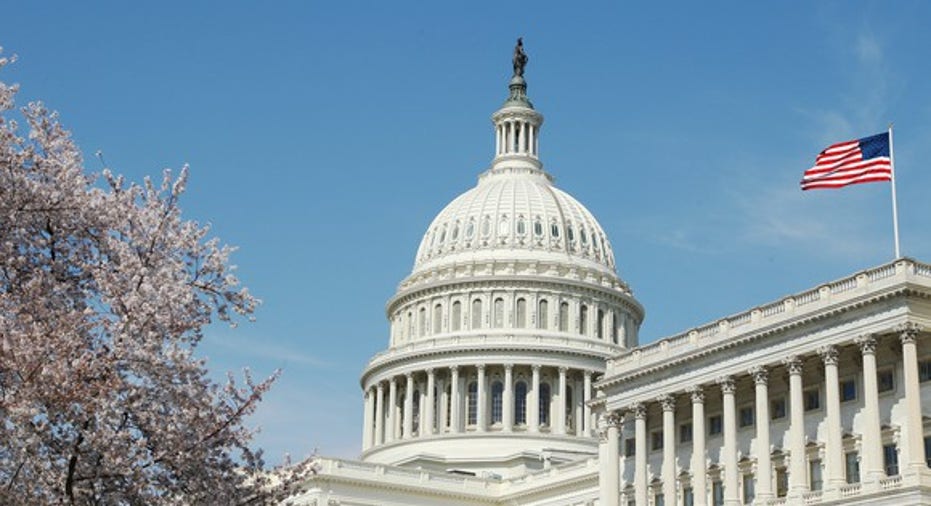What Happens at UnitedHealth Group If Obamacare Is Replaced

This week, republicans in the House of Representatives released their plan to replace Obamacare. The GOP plan does away with mandates requiring insurance and instead creates a tax credit system that allows individuals to buy plans in the open market. As this plan makes its way through Washington, D.C., there are bound to be changes, but as it stands, its passage could have a big impact onUnitedHealth Group (NYSE: UNH), and not all of it will be good.
What's at stake
Obamacare has enrolled 20 million of Americans in healthcare insurance, including 12 million Americans who signed up through Healthcare.gov or the state insurance exchanges for coverage in 2017. Serving these Americans is potentially a massive opportunity, but so far, it's been tough to turn a profit on Obamacare.
IMAGE SOURCE: GETTY IMAGES.
Losses associated with serving members enrolled in plans purchased through the Obamacare marketplaces have forced big insurers including UnitedHealth Group to significantly reduce their exposure to marketplaces in 2017.
In 2016, UnitedHealth Group served 1 million members through Obamacare plans offered in 34 states. Those members paid UnitedHealth Group about $4 billion in premium revenue; however, higher-than-expected costs associated with providing care to members resulted in hundreds of millions of dollars in losses on these plans last year. Because of those losses, UnitedHealth Group exited marketplaces in all but three states in 2017.
If the GOP's replacement plan allows insurers to turn a profit, it could have a big impact on UnitedHealth Group's bottom line.
The operating margin in UnitedHealth Group' employer & individual business was 4.9% in 2016, and if it earned that margin on the $4 billion in premiums it collected on Obamacare plans, then it would've added $196 million to the company's operating earnings. In reality, though, a replacement plan that's profitable for insurers could allow for greater margins than that 4.9% rate. That's because repealing Obamacare could also mean ditching expensive minimum care requirements, such as preventative care, that have increased the insurer's healthcare expenses. If we use the operating margin for UnitedHealth Group's employer & individual business in 2014, then that 5.8% margin translates into a $232 million profit tailwind.
Furthermore, since the republicans' plan makes health savings accounts more attractive, it could lead to higher enrollment inhigh-deductible health insurance plans, which require greater member cost-sharing for healthcare products and services.
As a refresher, Americans can contribute pre-tax dollars to health savings accounts that can be rolled over year to year, or used tax-free to pay qualified medical expenses. The GOP plan increases the contribution amount to these plans from a family limit of $6,750 to the sum of the deductible and out-of-pocket expenses associated with a high-deductible health insurance plan. Currently, that amount is $13,100.
Puts and takes
UnitedHealth Group's bottom-line could also benefit from the permanent elimination of the Health Insurance Industry Tax.
This tax was enacted to help cover the cost of Obamacare, and whilethe tax is on a one-year hiatus this year, it cost the insurance industry $11.3 billion in 2016. UnitedHealth Group's share of that industrywide insurance tax was $1.8 billion.
Also, if an Obamacare replacement coincides with broader corporate tax reform, then UnitedHealth Group's overall tax bill could significantly decrease. In 2016, the company's effective tax rate was 40.3%, and on the campaign, Trump advocated for a corporate tax rate of as low as 15%.
Replacing Obamacare may not all be good news for the company's financials, though.
For instance, Medicaid has been one of UnitedHealth Group's brightest shining stars since Obamacare's launch. If reform ultimately reduces Medicaid enrollment, it could create substantial headwinds. Last year, the company's community & state segment served 5.9 million Americans in 24 states, and more than 1 million of these Americans were enrolled because of Medicaid expansion.
The GOP plan is to maintain federal payments tied to Medicaid expansion through 2020, but after that, the plan only provides per person block grants to the state. That effectively freezes expansion. Depending on how this dynamic plays out, it could weigh heavily on the company because this segment generated $32.9 billion in revenue in 2016, up 14% from 2015.
UnitedHealth Group's Medicare Advantage business could also lose out if bonus payments awarded to plans with high star ratings are eliminated. This bonus program was created by Obamacare, and UnitedHealth Group forecasts 80% of its Medicare Advantage members will be in four-star or higher plans in 2017.
Looking ahead
The health insurance industry is undeniably in a period of significant uncertainty; however, health insurance reform that's more profit-friendly to insurers could provide a lot of support to UnitedHealth Group's future earnings. The devil will undeniably be in the details, but given UnitedHealth Group's track record, I think it can navigate these changes successfully. If I'm right, it may be one of the best insurers to own in a post-Obamacare America.
10 stocks we like better than UnitedHealth GroupWhen investing geniuses David and Tom Gardner have a stock tip, it can pay to listen. After all, the newsletter they have run for over a decade, Motley Fool Stock Advisor, has tripled the market.*
David and Tom just revealed what they believe are the 10 best stocks for investors to buy right now...and UnitedHealth Group wasn't one of them! That's right -- they think these 10 stocks are even better buys.
Click here to learn about these picks!
*Stock Advisor returns as of February 6, 2017.
Todd Campbell has no position in any stocks mentioned.His clients may have positions in the companies mentioned.The Motley Fool recommends UnitedHealth Group. The Motley Fool has a disclosure policy.



















